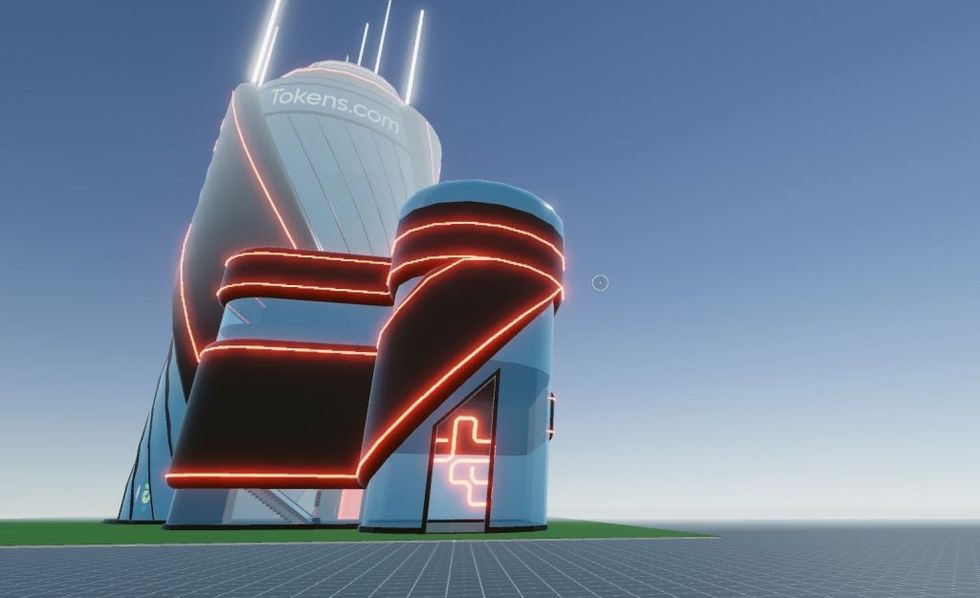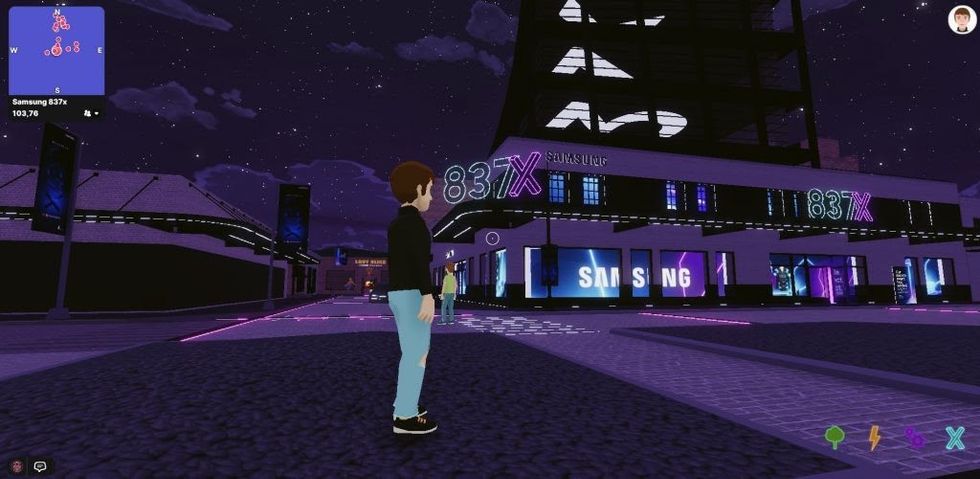When Andrew Kiguel purchased $2.43M-worth of virtual real estate in November 2021, he did so electronically -- and without the help of a realtor. After conducting his own research, he logged onto Decentraland -- one of the most popular metaverses currently being developed to buy and sell goods, land, and experiences -- and then used his digital wallet to pay for his digital plot in MANA, one of the tokens used to buy and sell assets within the Decentraland platform. (As of February 10, 1 MANA is equivalent to CAD$4.30.)
Buying real estate within the Metaverse -- an emerging virtual reality environment where users can create items, buy property, and interact with each via avatars -- is rapidly becoming a sizzling asset class. Virtual plots in well-established metaverses (such as Decentraland, Superworld, and Sandbox) are now rivalling real-word real estate values, with popular locations selling for millions.
Read: Want to Buy Property in the Metaverse? Here's How to Get Started
Kiguel recognized the opportunity for growth early on, creating the Metaverse Group -- a real estate company that helps facilitate the purchase and ownership of virtual real estate -- in October 2021, following some of his initial dabblings in the space.
"In 2020, I created a company called Tokens.com with the idea of taking a company public that gave exposure to some of the more interesting things happening in crypto and Web3 [considered to be the next phase of the internet], and I define Web3 as the ability to own a piece of something that presides on the internet," Kiguel tells STOREYS.
“Each metaverse resembles a city -- it has infinite of land available," he explains. "And there are neighbourhoods, as well as areas in the downtown core with higher visitor traffic."
Kiguel likens Decentraland, which opened to the public in 2020, to a small city that is "about 15% developed." While the platform contains 90,000 parcels of land, he notes half are "untouchable and reserved for the development of City sidewalks, parks, and other structures that make for less crowding." The City is run by a decentralized autonomous organization (DAO), meaning those owning parcels are the ones who vote and make the rules. Today's early participants "have a say in the contributions of the community, the content, plus what the environment looks and feels for people, which is all very new."
Understanding Crypto is a Potential Barrier
Real estate purchases, paid for via a form of cryptocurrency, are made over a blockchain -- in Kiguel's case, his recent acquisition was made over the Ethereum blockchain, one of the most utilized within the metaverse. This form of exchange provides a record of the transaction code and does not require any due diligence of a third-party, instead relying on self-governing technology; a central principle in the decentralized movement. The size and ask price of each parcel is listed, negotiations can ensue, and once the data is submitted, it cannot be removed. The transaction is then reported on social media by Decentraland's bot. All transactions are made public, done so electronically.
With so much money changing hands -- and requiring a considerable learning curve -- is it only a matter of time before real estate agents get in on the action, leveraging their expertise of the metaverse market and guiding their clients through transactions, much like in traditional markets?
"Metaverse land is in crypto, so you need to understand how to secure land, but also how crypto works," Kiguel says, though he notes people can play as guests, which requires only a computer and internet access, should they not wish to make transactions.
While he doesn't see a need for realtors in its current state, Kiguel says there could be more interest as metaverse worlds grow and assets increase. A realtor who knows the virtual neighbourhood, can provide information on whether it is the right metaverse for that person to buy in, and showing how to transact online could be helpful, he says, adding, "I do think there is going to be a level of expertise developed but it's going to be a different skill set than the types of brokers available in real estate today."

The "5th Avenue" of the Metaverse
Already, some metaverse markets are amassing huge value. Kiguel and his team built an office tower called the "Tokens Tower" in Decentraland's Crypto Valley, considered one of the most desirable and pricey portions of the City. He explains that as more parcels are scooped out, premium neighbourhoods comparable to New York's 5th Avenue could be possible. Also, if adjacent parcels are owned by a developer or real estate firm, they can be combined into "Estates". These help increase the value, though demand doesn't always evolve as expected.
"I originally thought this tower would be a prototype for other people to build office buildings, so essentially [they would] copy and paste the code. And then also place that code on other parts of land that we own for other people to rent out," says Kiguel.
Instead, he says companies right now are more interested in having digital billboards inside the office space. Kiguel says they are currently in talks with podcasters, magazines, and investment banks who would pay a monthly fee between $1,000 and $1,500 for this service, which is much like how Facebook and Google works with its advertisements. They are also tweaking the Tokens Tower to look more like a conference centre so that people can house retail and events.
Andrew Kiguel's avatar on undeveloped fashion estate
"We are in a conversation with one of the top running shoe companies in North America who wants to set up a virtual store on the property and pay us a monthly rent plus a portion of their sales," says Kiguel, which is a new take on a digital brick-and-mortar sale.
"Just like a traditional real estate company, we are helping similarly, asking: "How many square feet do you need?" "How big is the building?" "How can we help with the process?"
Currently both Tokens.com and Metaverse Group own multiple properties in different metaverses, with investment amassing to eight figures, according to Kiguel.

Growing Resale Potential
While the pool of developers and real estate firms in the space right now is very small, Kiguel sees value in the resale market, where realtors would be required to assist on sales which are not just open land parcels but actual properties.
"People thought we were crazy when we bought land and developed our tower, thinking we saw it as some trophy asset. But we are in talks with tenants and advertisers to build these metaverses out," he says. "There's not going to be one metaverse but multiple metaverses doing different things, some for education, workplace safety, commerce. To me, this is going to replace social media, gaming, and provide a new form of doing things we already do, just with more diversity."





















